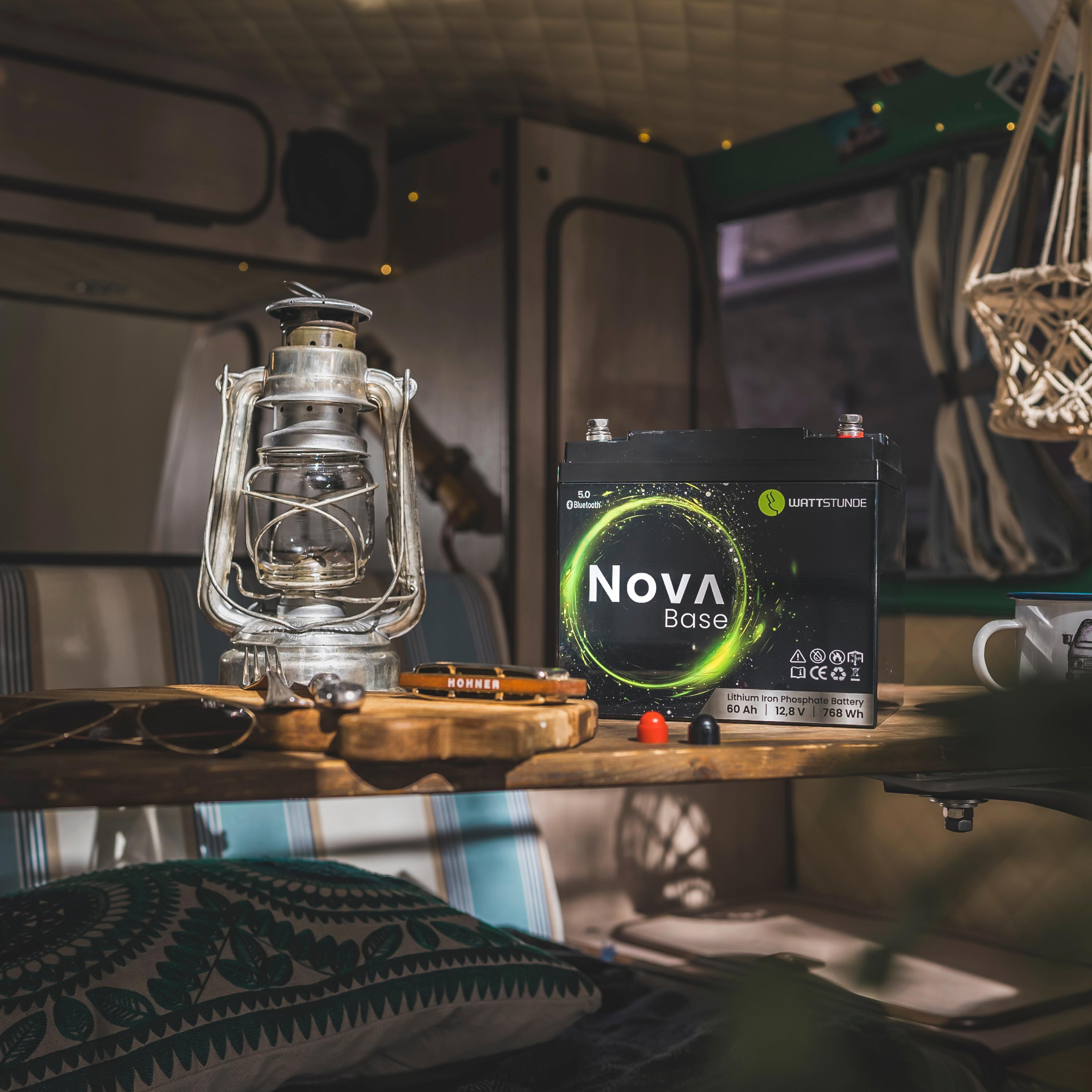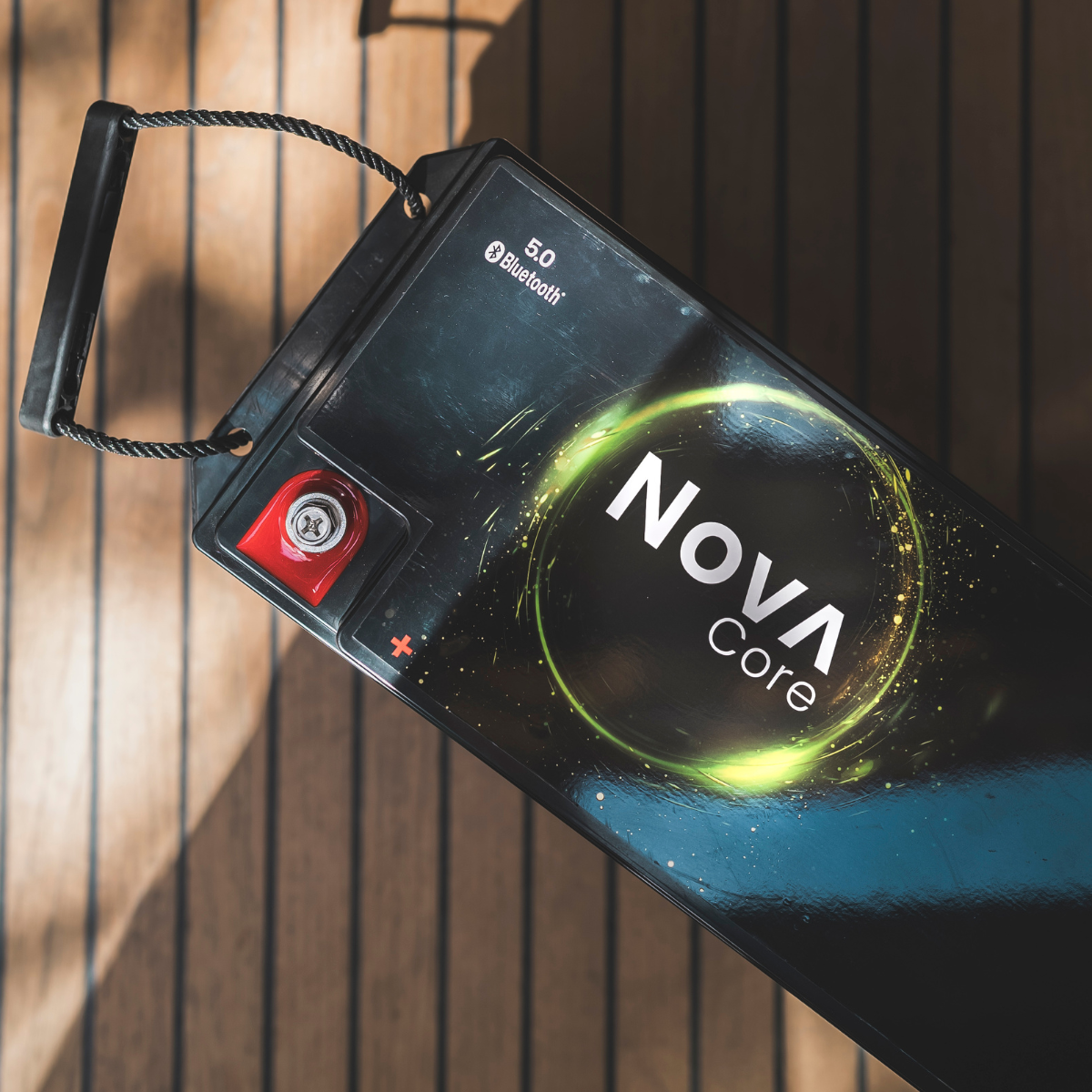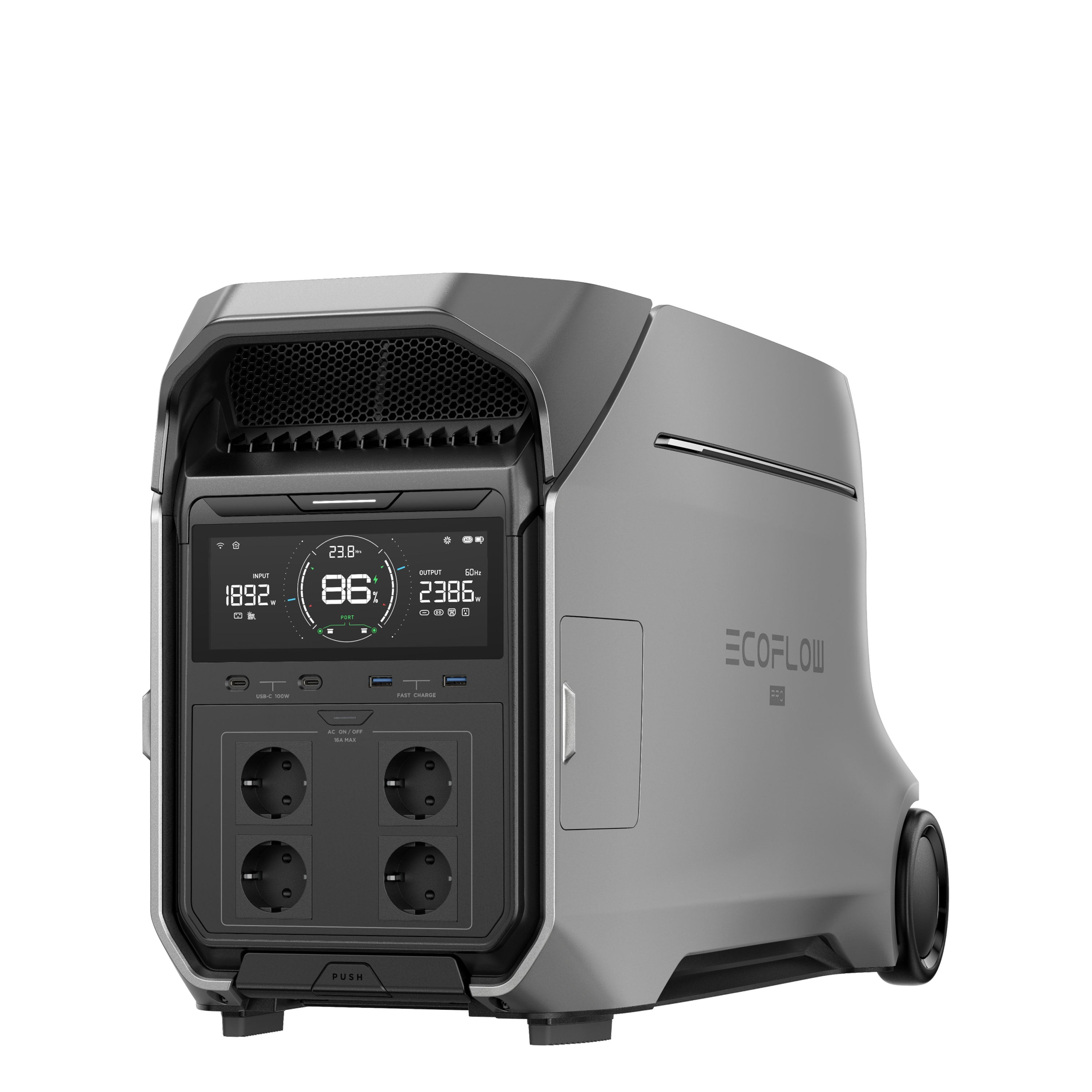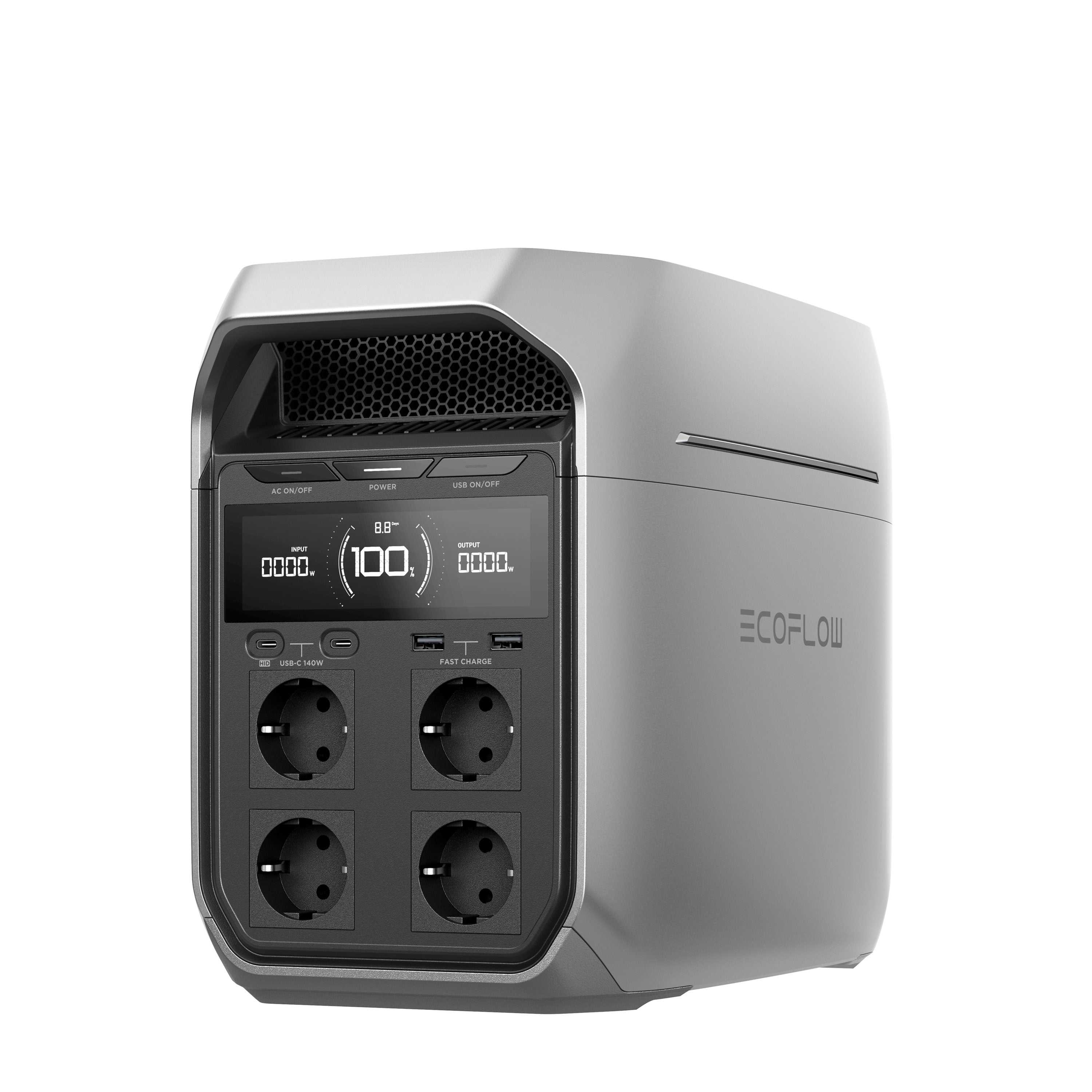Off-grid solar power systems – energy where there is no grid
With a solar off-grid system, you become independent of the power grid. Whether in your garden shed, while camping, or in a tiny house – your own photovoltaic off-grid system provides you with clean, stored solar power wherever you are. Completely without a connection to the public grid. Simply harvest solar energy, store it in batteries, and power your devices anytime – completely self-sufficient, quiet, and sustainable.
What is an off-grid system?
An off-grid system is a self-sufficient photovoltaic system consisting of the following components:
- Solar panels – convert sunlight into electricity
- Charge controller – protects and controls the energy between the module and the battery
- Solar battery – stores energy for nighttime and bad weather
- Inverter – generates 230V alternating current for normal household appliances
Whether for the garden, holiday home or emergency power supply at home: With a well-planned off-grid system, you can reliably and independently supply your most important consumers – even in the event of a power outage.
12V or 230V? Which one suits you best?
12V off-grid systems
Ideal for:
- Camping, van life, boats, mobile applications
- 12V devices such as coolers, LEDs, chargers
Advantages: - Simple & compact
- No inverter needed
- Cost-effective and easily transportable
230V off-grid systems
Ideal for:
- Garden shed, tiny house, off-grid solutions
- Household appliances such as refrigerators, televisions, tools
Advantages: - Net-like comfort
- For larger consumers
- Flexibly expandable
Your advantages with an off-grid system
- 100% energy self-sufficient
- Clean solar power without grid connection
- Modularly adaptable to your needs
- Ideal for camping, holiday homes or as an emergency power solution
- Cost-saving and low-maintenance in the long run
- Contributions to environmental protection
When does a solar off-grid system make sense?
- If you travel regularly but don't want to do without electricity
- If your garden shed, tiny house or boat doesn't have a power connection
- If you want to reliably operate important devices during a power outage
- If you want to take your energy future into your own hands
Related to this:
Solar batteries – storage for your system
Charge controller – Efficient and safe charging
Inverter – Converts direct current to 230V
Assembly accessories – For safe assembly
Expert advice – personal & manufacturer-independent
Are you unsure which system is right for your project?
Our team will help you tailor your off-grid system precisely to your needs – modular, efficient and future-proof .
Write to us using the contact form or call us directly. We'll advise you individually – whether you're a beginner or a professional.
FAQ | 4 frequently asked questions about off-grid solar systems
How exactly does a solar off-grid system work?
It's simple: Solar modules capture sunlight and convert it into electricity. A charge controller protects the battery from damage and ensures the correct voltage. The battery stores the power so you can use it even when the sun isn't shining. And the inverter converts the direct current into alternating current so you can connect your regular household appliances.
Can I operate my normal 230V devices with a solar off-grid system?
Sure! Our 230V off-grid systems provide you with power just like from a wall outlet. So you can easily run your lights, TV, or even a small refrigerator. The important thing is that the system is large enough for your needs.
How do I determine what size my solar off-grid system should be?
The size of your system depends on your energy needs. Make a list of all the devices you want to operate and calculate their daily power consumption in watt-hours. Also consider the solar radiation in your area and plan for sufficient battery capacity to store power for cloudy days or nights. Our team will be happy to help you calculate and select the right system.
Are the solar off-grid systems weatherproof?
Our solar modules are weatherproof and can easily withstand rain, snow, and wind. However, the battery and inverter should be protected from extreme weather conditions, for example, by placing them in a weatherproof box or a sheltered location like a garden shed.












































